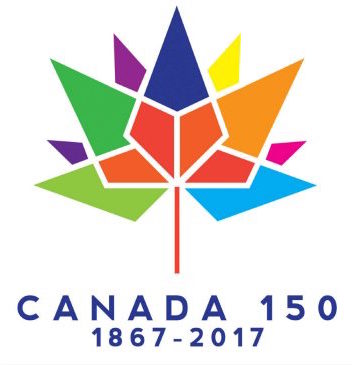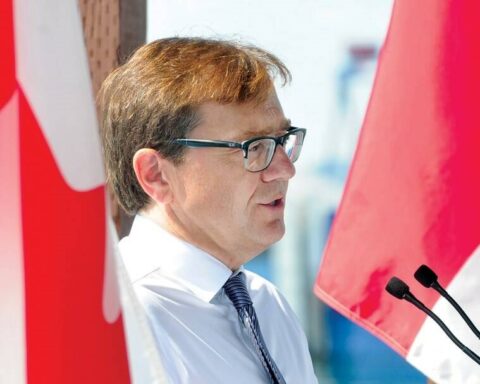 Queer activist Arsham Parsi took a risk when he left Iran and began to help other Iranians escape persecution for being lesbian, gay, bisexual or transgender (LGBT).
Queer activist Arsham Parsi took a risk when he left Iran and began to help other Iranians escape persecution for being lesbian, gay, bisexual or transgender (LGBT).
At a reading for his book Exiled for Love at the Toronto Public Library’s St. James Town branch, Parsi recalls the first time he attended Toronto’s Pride Parade 10 years ago, where he met an Iranian woman enjoying the parade.
He gave her his business card, hoping to get support from his own community.
“‘This is not us, this is them!’ she said and turned her face and walked away,” Parsi recalls. “I think I must have ruined her day because she couldn’t believe that Iranian LGBT exist.”
In search of a community
Instead of clustering in Iranian-populated communities, Parsi says he chooses to reside in Toronto’s LGBT-oriented enclave in the Church and Wellesley area. While Canada is embracing his sexuality, he says his own countrymen still deny him and other Iranian queers.
While Canada is embracing his sexuality, he says his own countrymen still deny him and other Iranian queers.
“[Former Iranian] President Mahmoud Ahmadinejad was not the first one to say that we don’t have homosexuals [in Iran],” says Parsi. “I clearly remember that lady saying, ‘We don’t have it.’”
Parsi was already active during his early 20s in providing support to gay men in Iran through an online community. Still in Iran, he planned his 22-year-old birthday party at home and invited all his gay friends, only to be warned by a relative that there would be a police raid.
He says he called off the party at the last minute and learned that the police were using the Internet to entrap gay men.
While he was never arrested, he knows other homosexuals in Iran who were. Of his gay friends who were taken into custody, some received 175 lashes on their backs, while others were tortured during interrogations.
Parsi says the immanent danger he felt every day was intolerant, forcing him to escape Iran. He told his family that he was going to study at a university in Cypress, but instead took a train to Turkey and sought asylum through the United Nations High Commission for Refugees (UNHCR) in Ankara.
“I continue with my work. It’s still risky, but I don’t like to admit it.”
From exile to acceptance
Parsi writes about being attacked with another gay Iranian refugee in Turkey while onlookers stood by. It took him a little over one year to finally receive refugee status and be accepted to Canada.
“Since arriving at the Canadian Embassy in Ankara, I had been treated with genuine openness and warmth,” Parsi writes in Exiled for Love. “The man smiled. I hoped that everyone in Canada would be like him.”
Upon arrival in Toronto in May 2006, Parsi says he, “inhaled deeply and felt the tears create wet paths across my cheeks . . . I felt as if I could breathe without pain.”
Parsi was 25 when he came to Canada as a government-sponsored refugee in the Refugee Assistance Program. During his first 12 months in Canada, he received financial assistance to cover basic needs – $604 a month to be exact.
“Not much, but it helped,” he says.
“This wonderful country would be where I would live, but one day I would go home.”
Parsi still receives threats from the Iranian community – something he says he deals with, but tries to ignore.
“I have professional relationships with the Iranian community, but I don’t participate in their events because sometimes they make me very upset,” he explains. He says there are members of the Iranian-Canadian community who are intolerant and don’t support each other.
“I don’t care what they say,” says Parsi. “I continue with my work. It’s still risky, but I don’t like to admit it.”
Railroad of support
In 2008, Parsi founded the Iranian Railroad for Queer Refugees (IRQR). As of December 2015, the IRQR has helped more than 1,200 Iranians who identify as LGBT claim refugee status.
According to the UNHCR in Ankara, more than 26,500 Iranian refugees were registered as of May 2016. UNHCR has registered 1,177 refugees who identify as LGBT as of June 2016 – 1,046 being from Iran, representing gay, lesbian and transgender individuals.
Parsi and the IRQR are following 820 of the 1,046 LGBT refugee applications to help them go through UNHCR processes and eventually lead them to gain refugee status in Western countries. During the process, IRQR provides support and counselling to members of Iran’s LGBT community.
“I would accept the generosity and security Canada offered me. I would use it to continue my work for others back in Iran,” writes Parsi in Exiled for Love. “This wonderful country would be where I would live, but one day I would go home. Until that day came, I would be in exile.”
Shan is a photojournalist and event photographer based in Toronto with more than a decade of experience. From Beijing Olympic Games to The Dalai Lama in Exile, she has covered a wide range of editorial assignments.





